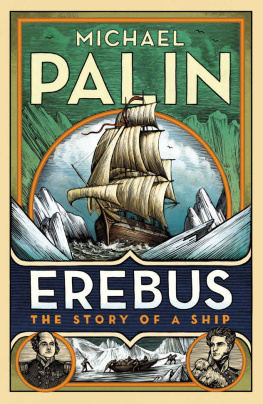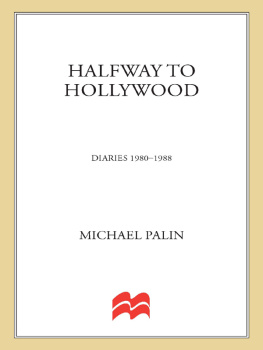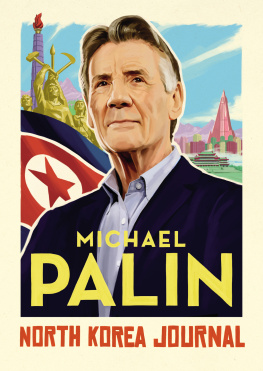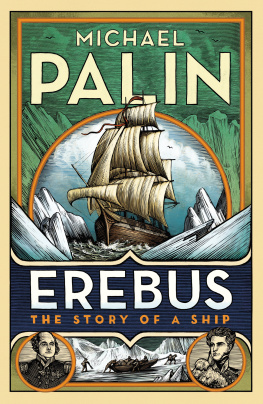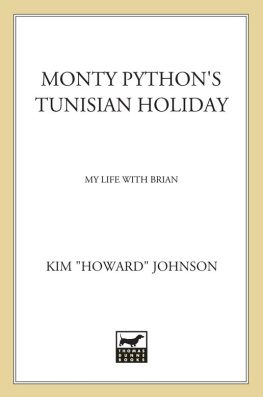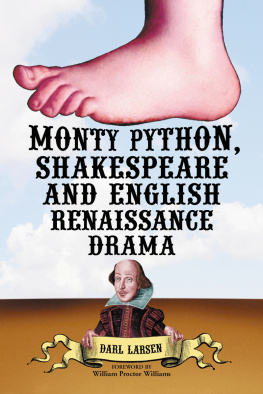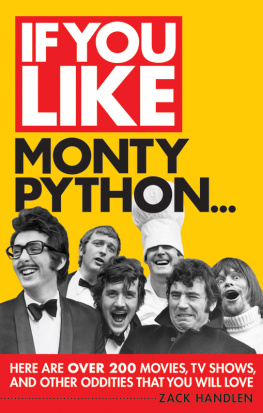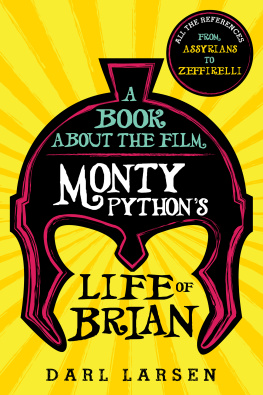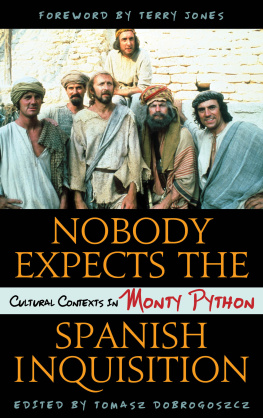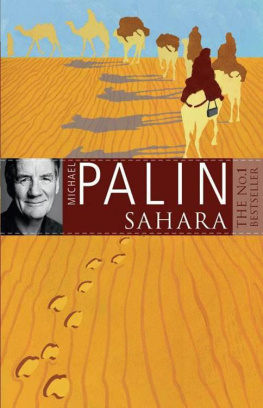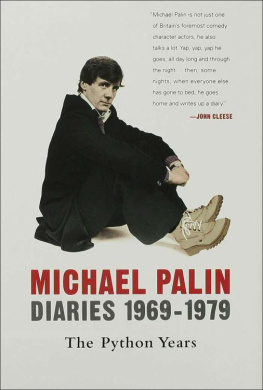Michael Palin
MONTY
PYTHON
AT WORK
A behind-the-scenes account of the making of the TV and stage shows, films, books and albums
Selected and edited from the text of Michael Palins published diaries by Geoffrey Strachan

NICK HERN BOOKS
London
www.nickhernbooks.co.uk
CONTENTS
PREFACE
Michael Palin
Since the publication of my diaries Ive received reactions from many people in many different areas of life. Some respond to the family material, particularly those entries dealing with illness and loss. Others find particular interest in locations and shared neighbourhoods, others in political asides, still others in my involvement in transport, and trains in particular. In many ways the most surprising and gratifying response has come from writer-performers, often much younger than myself, who see in my descriptions of the agony and ecstasy of creative work, reassuring parallels in their own experience.
As diaries are about work in progress, rather than achievement explained or reputation gained, they have a directness unvarnished by time. The creation of Monty Python, through the pages of a daily diary, is a nagging reminder of the unglamorous process rather than the glamorous result. I can understand why people in the same line of work might find this helpful. I was often lifted from the gloom of elusive inspiration by reading, in her diaries, that Virginia Woolf had bad days too. Similarly, Ive been told by aspiring young comedy writers and performers how encouraged they are by the travails of Python.
When my friend and scrupulous editor, Geoffrey Strachan, asked me if he could extract my Monty Python experiences from the diary into a single compact volume he made much of the fact that this could almost be an educational tool. I wasnt so sure about that. Theres little point in a Do-It-Yourself Python. Monty Python is what it is and can never be recreated by following steps one, two and three. And Python is a product of its time. The way we did things will never be possible again. But the important thing is that the will to do them and the spirit that created Python is timeless. If this account of the hoops we went through to turn that spirit into reality is instructive and inspirational today then I think it will indeed have proved itself to be some sort of educational tool, albeit in a very silly syllabus.
London, January 2014
INTRODUCTION
Michael Palin
I have kept a diary, more or less continuously, since April 1969. I was twenty-five years old then, married for three years and with a six-month-old son. I had been writing comedy with Terry Jones since leaving university in 1965, and, in addition to contributing material to The Frost Report, Marty Feldman, The Two Ronnies and anyone else whod take us, we had written and performed two series of Do Not Adjust Your Set (with Eric Idle, David Jason and Denise Coffey), and six episodes of The Complete and Utter History of Britain. After the last one went out in early 1969, John Cleese rang me.
Well, you wont be doing any more of those, he predicted, accurately as it turned out, so why dont we think of something new.
So it was that, quite coincidentally, Monty Python came into my life, only a month or so after the diary
The motivation for keeping the diaries remains the same as it always was, to keep a record of how I fill the days. The perfect, well-crafted, impeccably balanced entry persistently eludes me. Prejudices bob to the surface, anger crackles, judgements fall over each other, huffing and puffing. Opinions and interpretations are impulsive, inconsistent and frequently contradictory After all, thats where a daily diary differs from autobiography or memoir. It is an antidote to hindsight.
In the course of these diaries I grow up, my family grows up and Monty Python grows up. It was a great time to be alive.
London, January 2006
EDITORIAL NOTE
Geoffrey Strachan
During the second half of 1969, Michael Palin and Terry Jones joined forces with John Cleese, Graham Chapman, Eric Idle and Terry Gilliam to create and perform the BBC television comedy series Monty Pythons Flying Circus. Palin and Jones had written and performed together in student revue and cabaret at Oxford University, before going on to work professionally in television comedy. Cleese, Chapman and Idle had all three had parallel experience, first in Footlights revues at Cambridge University, then with the BBC; and Terry Gilliam, an American-born artist, had done animated cartoons for London Weekend Television. Over the course of the next fourteen years, collaborating as Monty Python, they created three more television series, four cinema films, and various live stage shows in the UK, Canada and the USA, as well as five books and nine record albums. Throughout these years Michael Palin kept a diary, recording many aspects of his working, private and family life. The first two volumes of his diaries, edited by himself for publication, appeared in 2006 and 2009. Together they cover the years 1969 to 1988.
In preparing this selection from those published diaries, my intention has been to focus simply on the accounts of the working methods of the Monty Python sextet by distilling from them the passages that record scenes from the Monty Python side of Michael Palins working life, and that of his fellow Pythons.
Readers of the complete Diaries will be aware that, between 1969 and 1983, Michael Palin was also involved, as writer and actor, with a great range of other television, film and book projects, notably the Ripping Yarns TV series and books, co-written with Terry Jones, and the film, The Missionary, which he also wrote and starred in. The other Pythons were similarly active. Among other things, John Cleese, with Connie Booth, wrote and starred in the TV series, Fawlty Towers. Terry Gilliam co-wrote and directed two films, Jabberwocky and Time Bandits (which involved Michael Palin as co-writer and actor). Eric Idle wrote Rutland Weekend Television (in which he starred) as well as The Rutland Dirty Weekend Book and a filmed Beatles spoof, All You Need is Cash. Graham Chapman cowrote and starred in two films, Yellowbeard and The Odd Job, as well as writing A Liars Autobiography, in which he gave his angle on Python. Terry Jones wrote several TV plays with Michael Palin, as well as their spoof childrens book, Bert Feggs Nasty Book for Boys and Girls, and his literary historical study, Chaucers Knight.
The fact that, at irregular intervals throughout the period of their collaboration, all six of the Pythons took leave of absence from Monty Python to work on projects of their own was doubtless crucial in enabling them to come together again, as Monty Python, with renewed energy and inventiveness. The diaries show this pattern clearly. From time to time Michael Palin records that he (and the other Pythons) thought the Monty Python partnership had ground to a halt sometimes amicably, sometimes less so. Then some inner drive, or outside circumstance, provided a trigger for work on a new project. This log of the first fourteen years of their voyage together provides a record of how some of these moments looked, at the time, to one of the six members of this extraordinary group of writer-performers and writer-directors. His diary entries give day-by-day accounts of his own involvement, and theirs, in the planning, writing, rehearsing, financing, filming, performing, editing, and on occasion the defence of the works of Monty Python.
Next page

